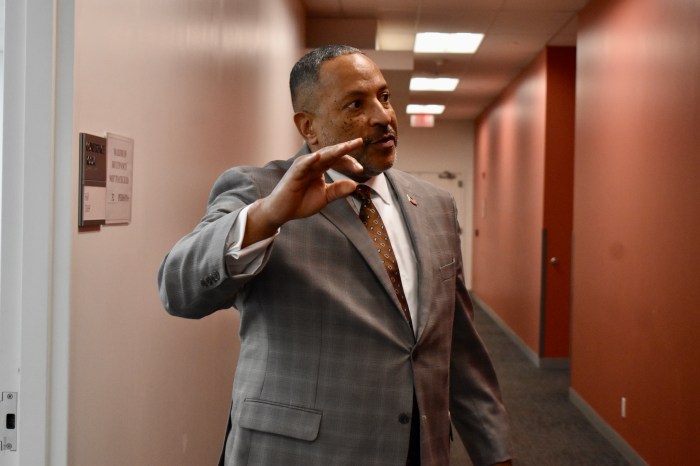The School District of Philadelphia has taken steps in recent months to dramatically reduce the number of backlogged misconduct cases in an attempt to reform the “rubber room” process, administrators said Tuesday.
Teachers and other staff report to the spaces – more formally known as reassignment rooms – at the district’s North Broad Street headquarters while investigations are pending.
District policy dictates that an initial probe should be completed within 60 to 90 days; however, employees accused of wrongdoing have spent months in limbo, receiving their full salary but having little work to do.
Superintendent Tony Watlington Sr., who was appointed in 2022, told members of the media Tuesday that he was aware of a case during his tenure that dragged on for nearly two years.
Recent changes have reduced the amount of cases exceeding the recommended time frame by 87% since July 2024, and the number of people assigned to the rooms has also fallen significantly, Watlington said.
Over the summer, nearly 50 investigations lagged the two-to-three month window. That total was brought down to six by January, officials said.
Philadelphia Federation of Teachers President Arthur Steinberg commended the district for their progress but said the process “is still taking far too long.”
“Amid a district-wide staffing shortage, the absence of just one educator from our classrooms is one too many – especially in light of the fact that a majority of staff are eventually cleared of any misconduct,” he added, in a statement.

During an hourlong conversation with reporters, Watlington said the reassignment rooms’ occupancy fell from 84 last summer to a current total of 28.
“I wouldn’t pay so much attention to the number at any given time, because we want to always investigate areas of reported misconduct,” he added. “Because the safety of our children is our No. 1 priority.”
He said the district’s inspector general has been looking into the reassignment room, though no formal report has been issued.
A team of five, inclusive of a supervisor, oversees investigations within the district, which has 19,000 workers.
No additional staff or resources were invested to address the backlog, Watlington said. Rather, the district implemented an improved case management system and developed a tracker to more closely monitor probes, officials said.
In addition, Watlington’s team overhauled the intake process, enhancing communication with accused employees to inform them about the process, he said.

He spoke alongside City Councilmember Isaiah Thomas, chair of the education committee, who introduced a resolution in January to hold hearings about the reassignment rooms.
“I think the most alarming complaint that really touched my heart was the fact that people did not understand exactly why they were there, and they did not know how long they would be there,” Thomas said Tuesday.
Thomas has been satisfied enough with the reforms that he has decided to put off scheduling the hearings.
He said the district has to balance the potential threat posed by its own staff, the possibility of false accusations, and the need to boost student achievement – all amid historic funding challenges and workforce shortages.
“This is a very sensitive issue, because you’re stuck between a rock and a hard place,” Thomas said.






























